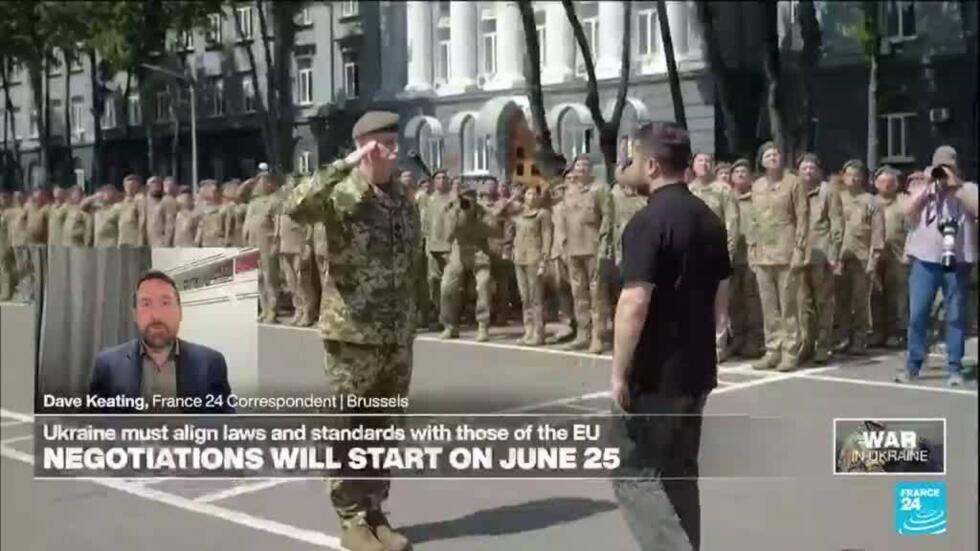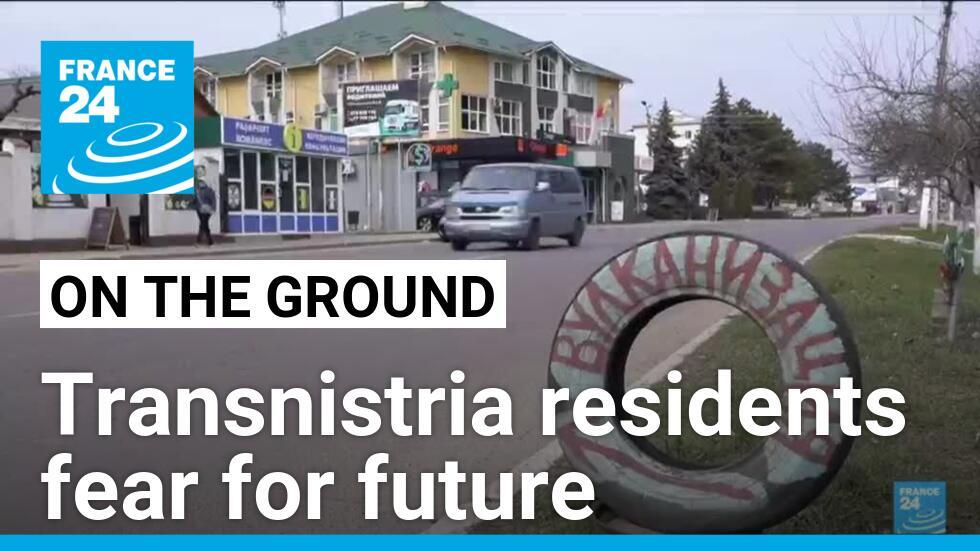It wasn’t until the final votes trickled in from Moldova’s far-flung diaspora that the final decision became clear. By an eyelash-thin margin of 50.46 percent, Moldovan voters at home and abroad had cast their ballots calling for the dream of EU membership to be enshrined in the nation’s constitution, nudging the country of some 2.6 million people on an irreversible path to a European future. As mandates go, they don’t come much more meagre.
“While support for EU integration remains high, it is fragile, as the referendum results demonstrate,” said Mikhail Polianskii, a research associate with the Peace Research Institute Frankfurt. “This result is not entirely unexpected, given where Ukraine finds itself 10 years after its ‘European moment’ of Euromaidan. Generally, the polls demonstrate that Moldovans do not support either Russia or Ukraine in this war – the majority wants ‘peace’ in their neighborhood, even though there is an unprecedented amount of Ukrainians now living in Moldova.”
It was a punch to the gut for Moldovan President Maia Sandu – one poll last month had put public support for the pro-EU camp at a convincing 63 percent. The disappointments kept coming. The former World Bank economist had organised the non-binding referendum for the same day as the country’s presidential election. Although a marked improvement on her 2020 election result, Sandu’s final score of just over 42 percent fell short of the absolute majority she needed to become the first Moldovan president to be elected for two terms.
Instead, bruised and furious, she will be heading into a frantic second round in just two weeks’ time, pitting her against former prosecutor general Alexander Stoianoglo, who won a better-than-expected 26 percent of the vote on the Party of Socialists’ slate. Depending on the decisions made by the rival opposition camps over the next fortnight, it could be tight – Renato Usatii, who came third with just under 14 percent, backed Sandu in 2020. He has said he’s unlikely to do it again.
09:17
Speaking before the final results were announced, Sandu was quick to praise both outcomes as hard-fought victories in the face of the full weight of Russian interference. Sandu has said the government has “clear evidence” that foreign-backed criminal groups had tried to buy off 300,000 voters in a cynical effort to throw Moldova’s Western realignment off kilter.
The allegations echo the announcement by Moldovan police earlier in October that Israeli-Moldovan oligarch and former politician Ilan Shor, now living in Russia after having been sentenced in absentia to 15 years’ in prison on graft charges, was involved in a network responsible for transferring $15 million in Russian funds to 130,000 Moldovans in an attempt to buy their votes ahead of the polls.
Shor has rejected the characterisation of these “pension top-ups” as voter bribery, and the Russian government denies all meddling in Moldova’s political processes. The Kremlin has called on Sandu to provide evidence to back up allegations of electoral fraud, while also casting suspicion on the abrupt rise in support for Sandu and the pro-EU campaign as the final diaspora votes came in.
Moldova, which applied for EU membership status in March 2022 following Russia’s full-scale invasion of Ukraine, has had a complicated relationship with its neighbours. Now lying between Ukraine and Romania, with whom it shares a language, the lands now called Moldova spent more than a century under Russian imperial rule before declaring independence in the aftermath of the Russian Revolution. The fledgling nation joined greater Romania three months later, though it still held onto a distinct cultural identity right up until its annexation by the Soviet Union under the Molotov-Ribbentrop Pact with Nazi Germany.
The Soviet Union’s collapse in the last years of the 20th century splintered the country further, with the Russian-backed breakaway state of Transnistria declaring its independence on the east banks of the Dniester River. The region of Gagauzia, largely peopled by Turkic communities who have maintained close cultural ties with Russia, also enjoys an uneasy autonomy. Since independence, the impoverished nation has struggled to strike a balance between its disparate communities, each with distinct – and competing – connections to the country’s patchwork past.
“In Moldova, significant opposition is rooted in concerns over economic stability and cultural identity, possible loss of independence to Romania and possible effects of decoupling from Russia – as the country remains extremely dependent on Russia economically in some key areas,” Polianskii said. “The anti-EU sentiment could coalesce into a formidable challenge for the incumbent Sandu in the second round.”
Although Moldova was granted EU candidate status in June 2022, Chisinau-based sociologist Vitalie Sprinceana said these rival visions of Moldova’s history could not easily be ignored in the push for European integration.
“Since the war in Ukraine, the government in the beginning adopted, in my mind, a very good position, being very cautious – but then embraced some kind of verbal militarism that also struck a nerve in some people,” he said. “Because Moldova, whether we like it or not, is a country that is not only divided, but it holds many historical legacies, different ethnic groups with different memories, and no one has worked to put them together. And I think repressing the opposition just by saying that it is pro-Russian, that also has created a bit of a negative reaction.”

02:34
Ultimately, he said, many voters may well have seen the EU membership not just as a referendum on the country’s geopolitical future but on the performance of the president herself.
“I think the referendum was put together with the presidential election to just consolidate Maia Sandu’s image as the pro-European politician,” he said. “As much as the current government wanted to transform the referendum into a kind of existential question – EU or Russia, or whatever – people understood that basically the referendum was about re-electing Maia Sandu. And because of that, the results of the referendum in my mind should not be read only as ‘the country’s divided’, but also as a criticism towards the current government.”
Despite the government’s efforts to frame both votes as a stark choice between East and West, Polianskii said, the choice facing voters had been rather more restricted.
“What’s really interesting in these elections, and without precedent really, is that candidates who directly or indirectly maintain reasonably good ties with Moscow did not field a single candidate,” he said. “The pro-Russian opposition is now divided, and the war in Ukraine is one of the central reasons for it. The ex-general prosecutor Stoianoglo is often portrayed as a ‘Moscow-candidate’ but he has been and remains a staunch supporter of European integration … So Russia does not really have a candidate in this race, even though some candidates tried – very cautiously – to connect to the pro-Russian electorate, like Gagauzia.”
Having swept to power in 2020 on a pro-European, anti-corruption platform, Sandu has fought a bitter campaign against what she describes as Russian influence in Moldova. Some of the measures have been severe. In June this year, Sandu approved broad changes to the legal definition of “high treason” that, Amnesty International said, “risks criminalising views and opinions that should be protected under international law”.
A political party linked to the disgraced oligarch Shor was ruled “unconstitutional” and banned last year after having organised anti-government demonstrations in the capital Chisinau. A number of Russian-language TV stations and social media channels connected to Shor – or, in some cases, just accused of being part of Russia’s “information war” against the country – have also been shut down in recent months.
Stoianoglo has also sought to push his credentials as a victim of political persecution. After Sandu’s Action and Solidarity Party won the 2021 parliamentary elections, they dismissed him from his role as prosecutor general, accusing him of failing to investigate high-profile oligarchs. The decision became an embarrassment when the government awkwardly failed to produce evidence that Stoianoglo was linked to the oligarchs in question, and a scandal when the European Court of Human Rights ruled that he’d been denied the right to a fair trial.
This has not stopped the authorities from continuing to take legal action against the former prosecutor general. Three days after declaring his candidacy for president, a Moldovan court announced after 18 months of inaction that it would be proceeding with a criminal case against him for abuse of power.
“When Maia Sandu came there was also the war in Ukraine, there was the energy crisis in 2021-22, and that kind of gave them, in their minds, the green light to be harsher on their opponents – and sometimes that harshness was not justified,” Sprinceana said.

02:18
This hardline approach to curbing what the government considers “destabilising” political activities may have put off voters already frustrated with the government’s slow progress on anti-corruption measures and judicial reform.
“Sandu’s approach towards purging pro-Russian influences from politics has indeed been contentious,” Polianskii said. “Her administration’s actions against the Shor party and similar entities have raised concerns about fairness of political process in the country, potentially alienating voters who view these efforts as politically motivated rather than purely legal or ethical measures.”
Ultimately, Polianskii said, Sandu’s odds of getting elected to a historic second term rest on her ability to consolidate her support base at home and abroad – and strike urgently needed deals with a handful of erstwhile political rivals.
“Overall, the chances that she will win in the second round are still quite high,” he said. “Even if defeat cannot be completely ruled out – as her ‘negative’ rating is quickly closing in on her support numbers.”